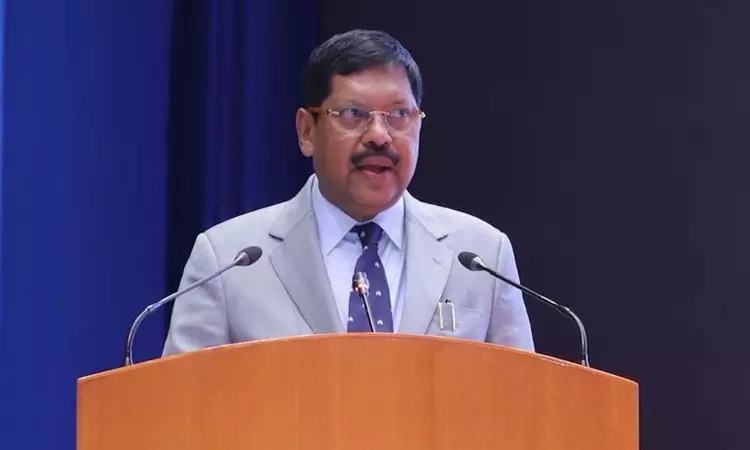'Law Must Protect the Most Vulnerable': CJI Gavai Calls on Lawyers, Judges to Champion Diversity and Inclusion
LIVELAW NEWS NETWORK
11 Oct 2025 5:46 PM IST

Chief Justice of India B.R. Gavai on Saturday urged lawyers and judges to make diversity and inclusion the cornerstone of justice delivery, saying that “the law finds its truest meaning when it protects the most vulnerable.”
Delivering the keynote address virtually at the 38th LAWASIA Conference in Hanoi, Justice Gavai reflected on his own journey from a marginalized background, crediting India's Constitution for transforming his life. “For me, born into a low-caste family, it meant that I was not born untouchable. The Constitution recognized my dignity as equal to that of every other citizen,” he said.
The Chief Justice said the principles of equality, social justice, and dignity were not abstract ideals but living aspirations for millions whose identities continue to face daily attacks. Drawing inspiration from Gautam Buddha, Mahatma Gandhi, and Dr. B.R. Ambedkar, he said their vision of justice shaped his understanding of law as an instrument to dismantle social hierarchies and empower the marginalized.
“When the law safeguards dignity, it can change the trajectory of a person's life,” Justice Gavai said.
On Lawyers' Role
Emphasizing that the legal profession must practice what it preaches, the CJI said lawyers have a “duty to reflect constitutional values of fairness and inclusion” not only in the courtroom but also within their offices and firms.
He urged the Bar to provide opportunities to lawyers from marginalized communities and to reject gender biases that continue to hold women back.
“Equality cannot be achieved by shielding women from opportunity but by granting them the agency to choose,” he said, recalling the Supreme Court's decision in Anuj Garg v. Hotel Association of India (2008).
"Lawyers have a duty to ensure that the principles they advocate in court and in public life are reflected in their own workplaces and professional conduct," said the Chief Justice of India.
On the Judiciary's Duty
Speaking about the judiciary's role, Justice Gavai cited landmark rulings such as N.M. Thomas (1976), Indra Sawhney (1992), and B.K. Pavitra (2019), noting that the Court has consistently recognized that equality cannot be achieved by treating unequals alike.
He highlighted his own judgment in State of Punjab v. Davinder Singh (2024), which upheld sub-classification among Scheduled Castes to ensure that “the most deprived are not left behind even within the same category.”
He also underscored the Supreme Court's proactive stance in gender equality cases, including Vishaka, Babita Puniya, and Lt. Col. Nitisha, which collectively advanced women's rights in the workplace and the armed forces.
Administrative Reforms in the Supreme Court
Justice Gavai revealed that after assuming office as Chief Justice in May 2025, one of his top priorities was to implement affirmative action within the Supreme Court's administrative structure, ensuring that marginalized communities receive their fair share of representation.
He also emphasized that inclusion requires accessibility: “The legal system must not remain confined to metropolitan cities but must reach even the remotest corners of the country.”
On Mentorship and Empathy
The Chief Justice said true inclusion requires empathy, patience, and mentorship. “Promoting diversity is not just about opening doors, but walking alongside those who enter them,” he remarked, stressing that senior professionals must guide and support young lawyers from disadvantaged backgrounds.
'Diversity Brings People Together, Inclusion Gives Them a Voice'
Concluding his speech, Justice Gavai called for a collective commitment to transform representation into real participation.
“Diversity may bring people to the same room, but inclusion ensures that every voice is heard, valued, and allowed to shape the conversation,” he said. “In embracing diversity, practicing inclusion, and upholding equity, we light the path from the shadows of history to a horizon where every soul can rise.”


